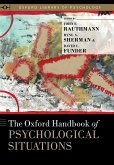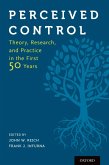This accessible book identifies twelve mechanisms of political radicalization that can move individuals, groups, and the masses to increased sympathy and support for political violence. Terrorism is an extreme form of radicalization, and the book describes pathways to terrorism to demonstrate the twelve mechanisms at work. Written by two psychologists who are acknowledged radicalization experts and consultants to the Department of Homeland Security,
Friction draws heavily on case histories. The case material is wide-ranging - drawn from Russia in the late 1800s, the US in the 1970s, and the radical Islam encouraged by the fall of the Soviet Union in the 1990s. Taken together, the twelve mechanisms show how unexceptional people are moved to exceptional violence in the conflict between states and non-state challengers. Captivating, and with psychological overtones, this timely book covers one of the most pressing issues of our time.
Dieser Download kann aus rechtlichen Gründen nur mit Rechnungsadresse in A, B, BG, CY, CZ, D, DK, EW, E, FIN, F, GR, HR, H, IRL, I, LT, L, LR, M, NL, PL, P, R, S, SLO, SK ausgeliefert werden.









